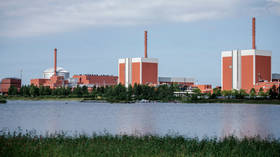
The Finnish grid operator says rolling blackouts are necessary to avoid a large-scale disaster

© Getty Images / ArtMarie
If Finland were to cancel its planned rotating power cuts in winter, it could lead to a large-scale national disruption, the country’s electricity grid operator has warned, according to Bloomberg.
If the outages don’t go ahead, the resulting uncontrolled blackouts would mean “people could die,” Arto Pahkin, a network operations manager at Fingrid, told the news agency.
The utility has repeatedly warned of potential rolling blackouts during the coming winter, citing “great uncertainties related to the availability of electricity.” The warnings came after Russia halted electricity supplies to Finland in May due to non-payment for power provided to the country during that month.
Although Russian energy only made up a small fraction of the Nordic nation’s total supply, the loss of deliveries threatens to have a massive impact, with Finns forced to choose between several bad options.

Temperatures in Finland in winter often drop below -20C, while the cities get less than six hours of light a day in the darkest months of the year. This makes Finland particularly vulnerable to the EU energy crunch, with a loss of power potentially exposing residents to life-threatening conditions in a matter of hours.
At the same time, Finland is reportedly far better prepared for power outages than other EU member states. Though the nation has not suffered a national grid failure since 1974, the population has always been encouraged to plan for such a risk. Unlike neighboring Sweden and Norway, the country has few domestic power resources and has to import nearly all of its fossil-fuel energy.
Some relief is expected during the next few months, when the Nordic nation finally brings Europe’s biggest nuclear reactor at the Olkiluoto Power Plant into regular use after an almost 14-year delay.
For more stories on economy & finance visit RT’s business section




